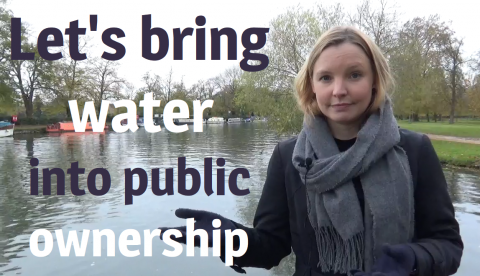
22 November 2017
A shocking report published by CorporateWatch this week revealed that South West Water spent millions more last year on its bosses and shareholders than it did on maintenance, fixing leaky pipes and cleaning up sewage.
The company are significantly behind on pollution targets. According to the report, “spills caused pollution to rivers, fish kills, damage to ecosystems and pollution on beaches”. The company has been put on special measures by the Environment Agency after it reported more “pollution incidents” than any of the other water and sewerage companies, with 115 spills per 10,000km of sewer, compared to an average of just 34!
On top of that, 82m litres of water a day continue to leak from the company’s pipes, and residents are worried by the prospect of flooding, after 165 incidents of internal sewage flooding were reported to South West Water last year.
Despite this shocking performance, South West Water users still pay some of the highest water bills in the UK. This must mean that South West Water are spending lots on fixing leaky pipes and cleaning up sewage, right?
Wrong.
According to CorporateWatch, South West Water spent £183m on 'maintenance' last year - that's all the money spent on fixing leaks, improving infrastructure, and cleaning up sewage and flooding. Now compare that to the £213m they paid out to their owners, the Pennon Group, over the same period.
Over the last 5 years, South West Water has paid almost £100m more to their owners than they have spent investing in their service. Worse, they are borrowing from investors to fund up-front costs for maintenance, and paying back millions in interest. Borrowing to pay for investment is normal and necessary, but interest payments would be much cheaper if South West Water was run in public ownership. And of course, there is no reason for them to be paying such high dividends to shareholders when they are having to borrow millions just to keep the taps running.
South West Water customers are paying expensive bills which are being used to fund ridiculously high dividends to shareholders, while the company builds up an increasingly unsustainable mountain of debt to pay for basic maintenance. Privatised water has failed.
Bringing water into public ownership would mean no dividends for shareholders, and every penny of your water bill would be spent on investment into the service. If extra spending was needed to deal with flooding or leaks, a public water company could borrow money to fix it and pay it back at a much lower rate of interest, meaning that your bills wouldn't have to rise.
The game is up - and the water companies know it. That’s why share prices dropped after our recent interview on the Today show.
Water is already publicly owned in Scotland and Northern Ireland, whilst Wales has a not for profit water company. Worldwide, 235 cities have taken water into public ownership in the last 15 years, many of them in France and the US.
Bringing water into public ownership would save us £1.8 billion a year on shareholder dividends alone. So, if we compensated shareholders according to what they have contributed since privatisation, water would pay for itself in around 10 years.
In our new video, Cat explains how and why a new publicly owned water system would work for everyone!





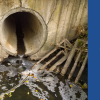

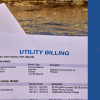


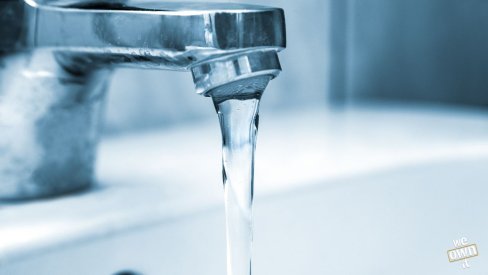
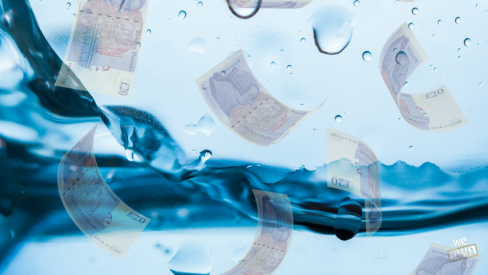
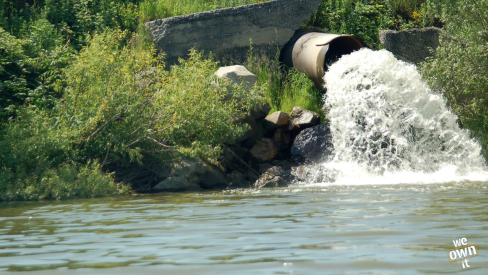
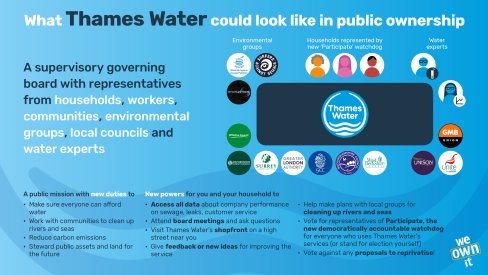
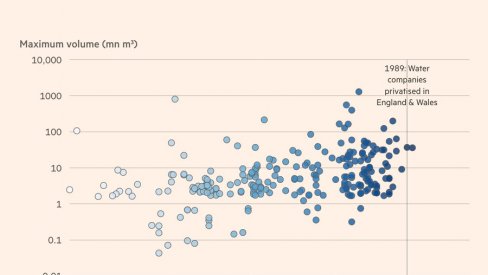
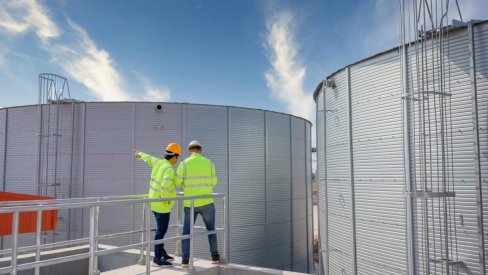
Add new comment